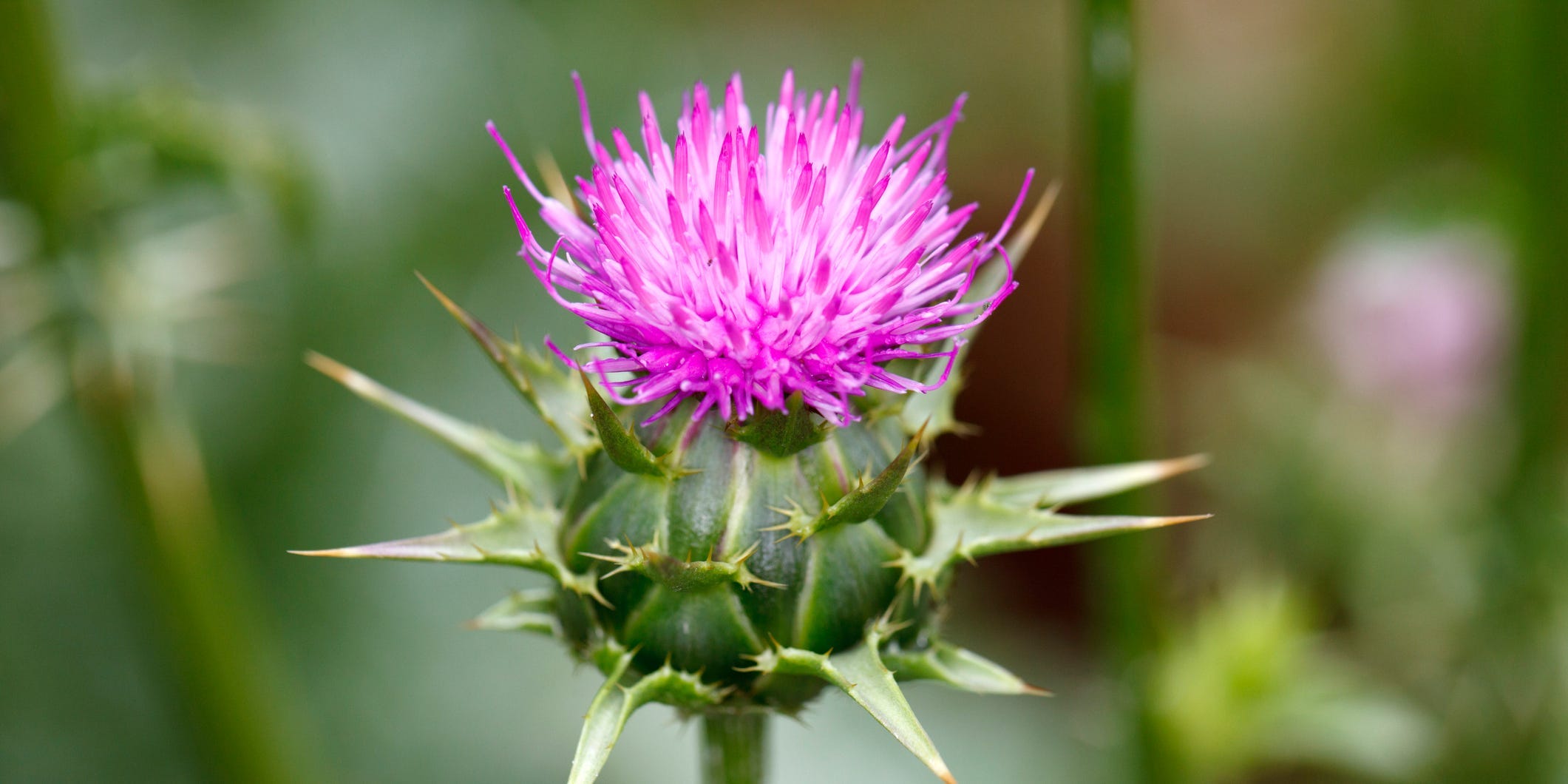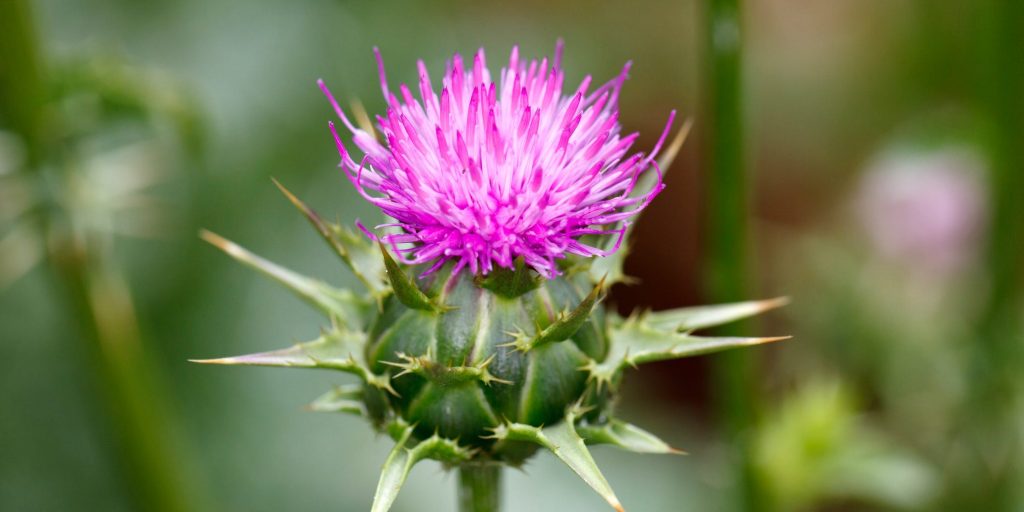
AYImages/Getty Images
- Milk thistle may help support skin and liver health because it contains silymarin, an antioxidant.
- It also contains silibinin, which researchers have found inhibited cancer growth in some animals.
- But research on humans is limited, so consult a doctor if you're considering milk thistle.
- Visit Insider's Health Reference library for more advice.
Milk thistle is an herb that Europeans brought to America during colonial times. Since then, it has been used as an herbal remedy for conditions such as hepatitis and diabetes.
The primary medicinal compound in the herb is silymarin, a strong antioxidant that is responsible for many of milk thistle's purported health benefits.
While many people use milk thistle as a dietary supplement, research on milk thistle's benefits for human health is very limited. So, more extensive human studies are needed to determine exactly what milk thistle is good for and how much is an appropriate dose.
That said, here are five possible benefits of milk thistle based from preliminary research.
1. May support liver health
The antioxidants in milk thistle may help protect liver cells from free radical damage, says Gary Soffer, MD, a Yale Medicine integrative medicine physician.
Though there have been no human studies that explored milk thistle's effect on the liver, a 2010 review found that milk thistle can help reduce liver damage in animals.
In addition, a 2017 review of both animal and human studies found that silymarin may be beneficial in treating hepatitis C viral infections, which causes liver damage and in severe cases, liver failure.
2. May help people with type two diabetes
The silymarin in milk thistle may help people with type two diabetes because of the way it protects pancreatic cells, says Erin Holley, a registered dietician at The Ohio State University Wexner Medical Center.
These benefits may be due to silymarin's ability to protect pancreas cells-which produce insulin- from damage, says Holley.
A 2016 meta-analysis found that daily doses of between 200 to 600 milligrams of silymarin overtime periods between 45 days and six months resulted in a significant reduction in fasting blood glucose levels in people with type two diabetes. This is important because people with diabetes need to keep their blood sugar at a healthy level.
More research is needed to determine the benefits of milk thistle for type one diabetes.
3. May support bone health
"Milk thistle has been studied experimentally in test tubes and animals, and [has been] shown to possibly reduce age-related bone loss by promoting bone mineralization," says Holley.
A 2013 review based on animal studies suggested that silymarin may play an important role in preventing bone loss.
4. May have cancer-fighting properties
In addition to silymarin, milk thistle contains another antioxidant called silibinin.
A 2014 review of animal studies found that silibinin can inhibit tumor cell growth, particularly in skin, prostate, colon, and lung cancers. Silibinin tumor-fighting properties may be due to its antioxidant effects, says Soffer.
Additionally, Holley says that silymarin helps to prevent cell DNA damage, which can be helpful in preventing cancer.
However, since this research has been conducted in animals and not humans, a definite conclusion cannot be drawn as to whether milk thistle definitely has cancer-fighting properties in humans. It's unclear if the findings are limited to the lab setting, or if they are also true in people, says Soffer.
5. May support skin health
Due to the antioxidant and anti-inflammatory properties of silymarin, Holley says milk thistle is believed to be beneficial for inflammatory skin conditions, particularly skin conditions related to irritation caused by radiation (cancer treatment).
A 2019 study found that using a topical formula of silymarin once a day for five weeks can help prevent radiation-induced dermatitis, or skin irritation, in cancer patients.
Additionally, a 2012 study found that in people with acne, 210 milligrams of silymarin orally daily for six to eight weeks improved acne.
Insider's takeaway
Overall, more high-quality research (larger-scale studies in humans) is needed to determine the efficacy of milk thistle for various conditions. In the meantime, if you're interested in trying milk thistle for its health benefits, talk to your doctor about any potential drug interactions and whether it's a good fit for you.
